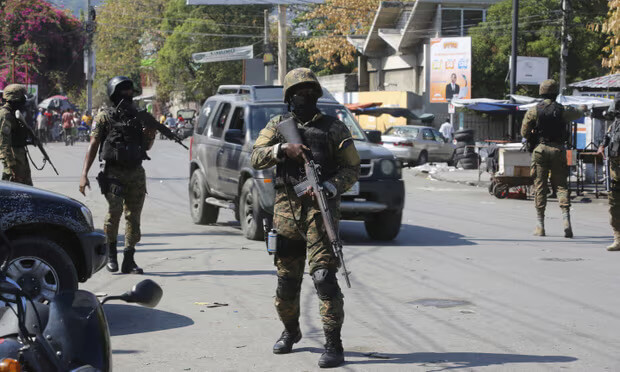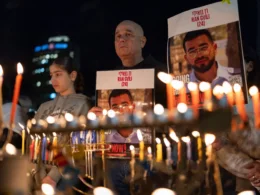1. Assassination of President Moïse
In July 2021, President Jovenel Moïse fell victim to a meticulously planned assassination at his private residence near Port-au-Prince. Hired mercenaries, reportedly dispatched with the intent to kidnap or kill Moïse, stormed the residence and unleashed a barrage of gunfire for over 30 minutes. Martine Moïse, the First Lady, recounted the shocking event to investigators, revealing the extent of the violence. She discovered her husband's lifeless body in their bedroom, with his left eye gruesomely removed from its socket. The assassination sent shockwaves across Haiti and plunged the nation into deeper political turmoil.
2. Rise of Armed Gangs
In the wake of Moïse's assassination, armed gangs, led by figures like Jimmy "Barbecue" Chérizier, seized the opportunity to assert their dominance. Chérizier, notorious for his brutal tactics, leads the G9 coalition of gangs, aiming to topple the government and establish what he calls a "model government." Collaborating with approximately 200 other gang factions, they have effectively gained control of nearly 80% of the capital, Port-au-Prince. Their reign of terror has contributed significantly to the country's descent into chaos and lawlessness. Another prominent group involved in the ongoing chaos is G-Pep, led by Gabriel Jean-Pierre, also known as Ti Gabriel. Prior to the formation of G-Pep, he served as the head of a gang known as Nan Brooklyn, operating out of the economically disadvantaged Cite Soleil district in Port-au-Prince.
3. De Facto Prime Minister Ariel Henry
Following Moïse's assassination, Ariel Henry assumed the role of de facto Prime Minister of Haiti. However, his leadership has been marred by a deepening humanitarian crisis and escalating violence perpetuated by groups like Chérizier's. Despite Henry's efforts to stabilize the situation by postponing elections and prioritizing security measures, the situation has only worsened. There has been a dramatic increase in senseless killings, kidnappings, and displacements, exacerbating the suffering of ordinary Haitians. Amid the ongoing turmoil, Henry has faced obstacles entering Haiti due to the closure of airports caused by the violence. He made his way to Puerto Rico a week ago, where he publicly announced his resignation through a recorded statement.
4. International Involvement
In response to the crisis, Haiti sought assistance from international partners, forging an agreement with Kenya to deploy troops to help quell the violence. In addition to the United States pledging $300 million to support the Kenyan security operation, the U.S. military flew forces into Haiti Sunday to airlift nonessential personnel out of the country, and a new team of Marines arrived there Thursday to help defend the U.S. Embassy. The E.U. has also evacuated its staff.
5. Presidential Transition
Prime Minister Ariel Henry has agreed to resign amidst Haiti's escalating violence and political turmoil. On Tuesday, National Security Adviser Jake Sullivan commended Henry for prioritizing his country and its people.
Related Story: Ariel Henry Out: Haiti’s Prime Minister Relinquishes Power, Transitional Leadership Under Consideration









